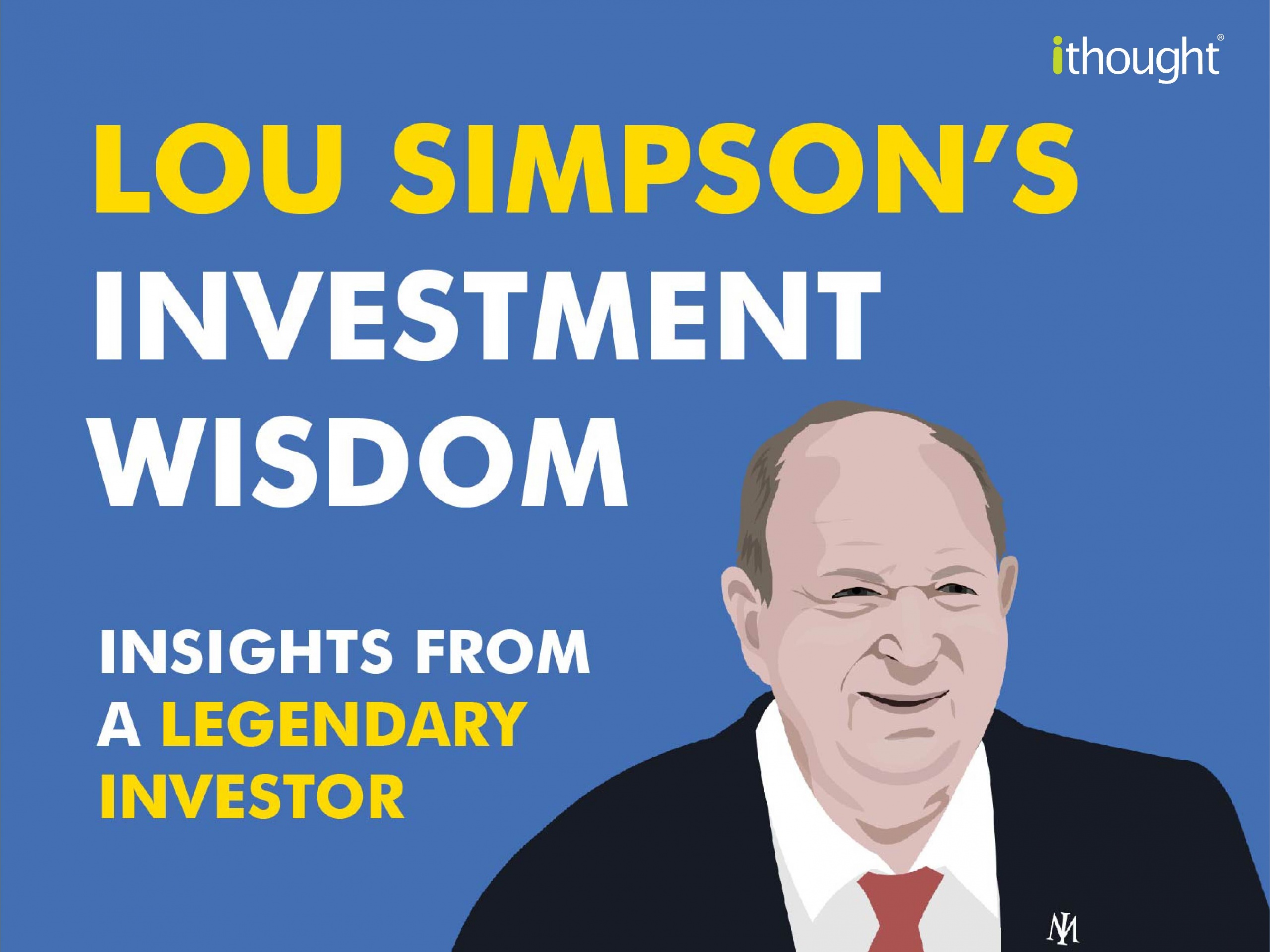
Lou Simpson, the former Chief Investment Officer for GEICO—a subsidiary of Berkshire Hathaway—has earned a reputation as one of the investment greats. Even Warren Buffett, the legendary Chairman of Berkshire Hathaway, holds him in high regard. Today, Lou is the Chairman of SQ Advisors and an adjunct professor of finance at Kellogg School of Management. His investment strategies have consistently delivered remarkable returns, making his philosophy worth exploring. In a recent interview with Robert Korajczyk, a professor of finance at Kellogg, Simpson shared valuable insights into his approach to investing. Let’s dive into the essence of his strategy.
Simplicity: The Core of Lou Simpson’s Philosophy
Lou’s investment philosophy revolves around simplicity. He believes that for most investors, a passive product like an index fund is the best choice. However, for professional investors, the challenge is to add value. “The more you trade, the harder it is to add value because you’re absorbing a lot of transaction costs, not to mention taxes,” says Lou.
Instead of trading frequently, Lou runs a long-time-horizon portfolio consisting of 10 to 15 stocks. These are predominantly U.S.-based companies with high returns on capital, consistent performance, and strong leadership focused on creating long-term value for shareholders while treating their stakeholders right.
Concentration: Focus on Your Best Ideas
“You can only know so many companies. If you’re managing 50 or 100 positions, the chances that you can add value are much, much lower,” Lou asserts. His strategy involves concentrating investments on his very best ideas. With a portfolio turnover of just 15-20%, he typically adds or removes only one or two positions each year.
Lou echoes Warren Buffett’s advice of imagining investing as a fare card with 20 punches. Each change punches a hole in the card, and once you’ve made your twentieth change, you must stick with what you own. This approach emphasizes the importance of being very careful with each investment decision. “The more decisions you make, the higher the chances are that you will make a poor decision.”
Cutting Weeds and Watering Flowers
A common mistake among investors is selling their winners and keeping their losers. Lou advises the opposite: “Sell the things that didn’t work out, and let the things that are working out run.” His biggest regret is selling good companies too soon. Generally, if you’ve made good investments, they will last for a long time.
Balancing Quantitative and Qualitative Skills
While quantitative skills are essential, Lou stresses the importance of qualitative analysis. “As Warren used to tell me, ‘You’re better off being approximately right than exactly wrong.’” Understanding the integrity of a company’s leadership, their treatment of employees, and their focus on long-term success is crucial. These qualitative insights help in managing the concentrated risk of a portfolio.
Managing Risks in a Concentrated Portfolio
When assessing the risks, Lou considers several factors:
- Business Reality: Is this the business we thought it was?
- Management Quality: Are the management’s actions aligned with long-term value creation?
- Valuation: Is the current price too high despite the company’s quality?
These considerations help in deciding whether to hold or sell an investment, ensuring that only the best-performing assets remain in the portfolio.
The Challenge of Large Portfolios
Lou acknowledges the difference in scale between his and Warren Buffett’s portfolios. Managing billions more restricts the ability to maintain a concentrated portfolio, making Buffett’s job significantly harder.
The Impact of Trading and Decision-Making
Lou emphasizes the correlation between frequent trading and lower returns. He also notes that involving too many people in investment decisions can lead to poorer outcomes, as consensus often lowers the quality of decision-making. Simplicity and focus are key.
Passive vs. Active Investing
For those who doubt their ability to add value through active investing, Lou’s advice is straightforward: opt for low-cost passive products. Most full-time professionals struggle to outperform the market after fees and transaction costs. Investing based on hot tips or market noise is a losing game.
Conclusion
Lou Simpson’s investment philosophy centres on simplicity, concentration, and a balance of quantitative and qualitative skills. His approach of focusing on a few high-quality companies and holding them for the long term has proven successful. For most investors, embracing a passive investment strategy might be the best path to consistent returns. However, for those willing to invest the time and effort, Lou’s principles provide a roadmap to potentially adding value and achieving investment success.